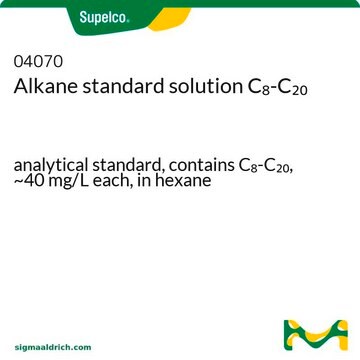109258
Methyl propionate
99%
Synonym(s):
Methyl propanoate, Propionic acid methyl ester
About This Item
Recommended Products
vapor density
3 (vs air)
Quality Level
vapor pressure
40 mmHg ( 11 °C)
85.3 mmHg ( 25 °C)
Assay
99%
autoignition temp.
876 °F
expl. lim.
13 %
refractive index
n20/D 1.376 (lit.)
bp
79 °C (lit.)
mp
−88 °C (lit.)
solubility
H2O: soluble 16 parts
alcohol: miscible
diethyl ether: miscible
density
0.915 g/mL at 25 °C (lit.)
SMILES string
CCC(=O)OC
InChI
1S/C4H8O2/c1-3-4(5)6-2/h3H2,1-2H3
InChI key
RJUFJBKOKNCXHH-UHFFFAOYSA-N
Looking for similar products? Visit Product Comparison Guide
General description
Signal Word
Danger
Hazard Statements
Precautionary Statements
Hazard Classifications
Acute Tox. 4 Inhalation - Eye Dam. 1 - Flam. Liq. 2
Storage Class Code
3 - Flammable liquids
WGK
WGK 1
Flash Point(F)
28.4 °F - closed cup
Flash Point(C)
-2 °C - closed cup
Personal Protective Equipment
Certificates of Analysis (COA)
Search for Certificates of Analysis (COA) by entering the products Lot/Batch Number. Lot and Batch Numbers can be found on a product’s label following the words ‘Lot’ or ‘Batch’.
Already Own This Product?
Find documentation for the products that you have recently purchased in the Document Library.
Customers Also Viewed
Our team of scientists has experience in all areas of research including Life Science, Material Science, Chemical Synthesis, Chromatography, Analytical and many others.
Contact Technical Service












